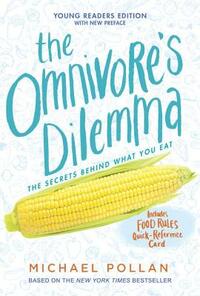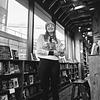Take a photo of a barcode or cover
Loved it. It is one of the few fiction books I have read cover to cover. It was very easy to read and has great info on it. Lots of Charts that help me understand stuff and very, very exciting info. Changed my opinion about many things
adventurous
informative
inspiring
reflective
relaxing
medium-paced
It may seem odd that I put this under politics and philosophy; and yet, that's what I feel this book is. I was recommended it by several friends, and also by countless articles and reviews - and it was worth it.
Pollan first takes us through the world of industrial corn - a world that is in many ways shocking and terrifying. Examining the industrial food chain is an unpleasant thing. It is precarious and in many ways nonsensical. This book does an amazing job revealing this, and Pollan's semi-polemic prose does a good job of Warning You.
Next comes the world of organic - both big and little. As it turns out, there is - and Pollan draws - a sharp line between industrial organic and small organic. Again, the prose is somewhat polemical, but you get the feeling that the rhetoric is well deserved.
Finally comes some of the best writing of the whole book: the section on hunting and gathering. Pollan writes one of the best examinations of the ethics of hunting and eating animals that I've ever read; if you read nothing else in the book, read his section on eating animals. It brings up quite a few good points for both sides of the argument. In addition, Pollan's account of hunting, gathering, and cooking a meal is quite entertaining and beautiful.
All in all, this book was fantastic. I would recommend it for anyone who likes food or is concerned about the ways in which our food is produced and consumed.
Pollan first takes us through the world of industrial corn - a world that is in many ways shocking and terrifying. Examining the industrial food chain is an unpleasant thing. It is precarious and in many ways nonsensical. This book does an amazing job revealing this, and Pollan's semi-polemic prose does a good job of Warning You.
Next comes the world of organic - both big and little. As it turns out, there is - and Pollan draws - a sharp line between industrial organic and small organic. Again, the prose is somewhat polemical, but you get the feeling that the rhetoric is well deserved.
Finally comes some of the best writing of the whole book: the section on hunting and gathering. Pollan writes one of the best examinations of the ethics of hunting and eating animals that I've ever read; if you read nothing else in the book, read his section on eating animals. It brings up quite a few good points for both sides of the argument. In addition, Pollan's account of hunting, gathering, and cooking a meal is quite entertaining and beautiful.
All in all, this book was fantastic. I would recommend it for anyone who likes food or is concerned about the ways in which our food is produced and consumed.
been really into the concept of food and this really satisfied that desire to learn
informative
slow-paced
This is one of those nonfiction books that I think is definitely worth a read & is one that I'll think about often, but one that wasn't always the most enjoyable to read. My first issue with it is that is promises to be "a natural history of four meals," which in my head was how it would be structured, but instead is organized in a bit of a jumbled way (I was picturing something that more closely resembles Pollan's Botany of Desire). My second issue is that he chose a WIDE scope for a book & I don't think he followed through on half of the items that he introduced or wanted to discuss. At the same time though, I don't know if I could have read a longer book from him. Maybe it's just me, maybe it's just this author, but I think this could have been better.
In The Omnivore’s Dilemma, the author explores the complexities of modern food systems by tracing the origins of four meals: industrial, organic, local, and foraged. He examines the ethical, environmental, and health consequences of how food is produced and consumed, highlighting the disconnection between consumers and the sources of their food. The book challenges readers to reconsider their food choices, advocating for greater awareness and sustainable practices.
This book was a very interesting read. Nothing of its content really shocked or amazed me (I think I had heard/read/known about much of it before), but the was Pollan writes is very approachable, without being dumbed down. It makes you look at labels in the grocery store, and think about what you eat, why you eat it, and what the consequences of those decisions are. Thanks to my brother, for giving this as a Christmas gift.
This book is amazing so far and I've only just hit the hundred page mark. So informative! Everyone should read it, even vegetarians and vegans.
The first part was quite bleak, but the second and third parts did have some hopeful ideas and suggestions for eating thoughtfully.
informative
inspiring
reflective
medium-paced



